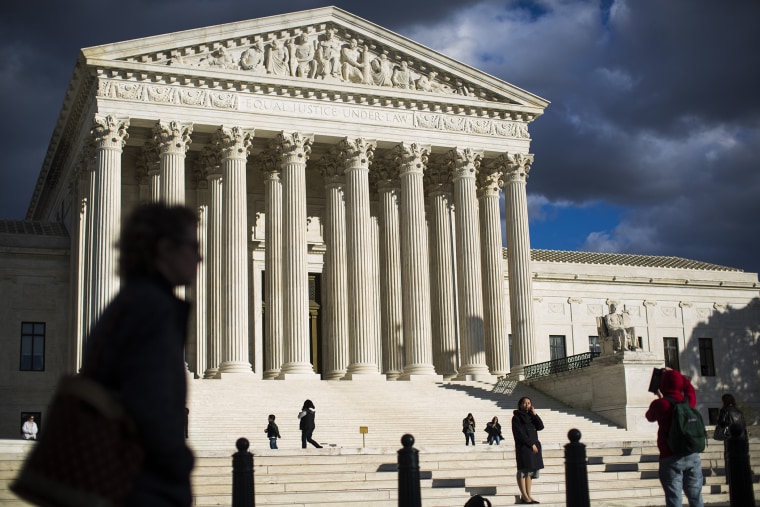In 2008, a woman applied to be a coal miner at Mach Mining in Marion, Illinois. She didn’t get the job. No woman ever had.
Was Mach Mining systematically discriminating against women? The Equal Employment Opportunity Commission, the federal agency that enforces employment discrimination laws, filed suit against the company in 2011 saying it was.
“Women miners are out there, they were applying at Mach Mines, and they had a right to be considered on their qualifications and merits,” the agency said in a press release then.
RELATED: 2015's top Supreme Court cases
But that’s not the question before the Supreme Court today. Instead, the Court is hearing arguments on a seemingly arcane procedural issue in the case that could make it much easier for employers to get rid of such discrimination lawsuits. A victory for Mach Mining would be yet another hurdle for victims of employment discrimination, from a court that has in recent years erected several of them.
Before filing a lawsuit on behalf of someone who has been discriminated against, usually under Title VII of the Civil Rights Act, the EEOC can negotiate a settlement, a process known as “conciliation.” Mach Mining wants to open up that process to the scrutiny of a court, in part because it claims that the EEOC treated it unfairly in the conciliation process. There's no mystery as to why: In other cases, like the pregnancy discrimination suit brought against Bloomberg LP, judges have dismissed some or all of the case after finding fault with the EEOC's settlement process.
The EEOC says it has to keep the process confidential to protect workers and that whether or not it sues is a matter of the agency’s discretion. The Civil Rights Act, the federal agency wrote in its brief, "leaves to the Commission the ultimate decision whether to enter into a conciliation agreement or to sue.”
The Seventh Circuit Court of Appeals agreed with the EEOC. The process Mach Mining wanted, the panel wrote, “invites employers to use the conciliation process to undermine enforcement of Title VII" of the Civil Rights Act, which bans discrimination in employment. "If the EEOC has pled on the face of its complaint that it has complied with all procedures required under Title VII and the relevant documents are facially sufficient, our review of those procedures is satisfied.”
The EEOC and Mach Mining have been entwined in litigation over this single point for almost two years. But a group of women's rights groups that submitted an amicus brief in the case argue the delay would be even worse if Mach Mining got its way -- especially for women in blue-collar jobs.
"A victory for Mach Mining would be yet another hurdle for victims of employment discrimination, from a court that has in recent years erected several of them."'
The Supreme Court's recent cases on Title VII claims have generally narrowed the path to suing over discrimination. The most famous case was in 2007 with Ledbetter v. Goodyear Tire & Rubber Co. It narrowed the window when an employee can sue over pay discrimination even if she had no idea she was being discriminated against until years into her employment. The decision was later reversed by the first law President Obama signed into office.
In Wal-Mart v. Dukes, a 2011 decision written by Justice Antonin Scalia that concerned whether female employees of Wal-Mart could sue as a class, the Court made it significantly harder to put together a class action lawsuit. More recently, in a one-two punch in 2013, Vance v. Ball State (by Justice Samuel Alito) shrank who counted as a "supervisor" and thus liable for discrimination, and University of Texas Southwestern Medical Center v. Nassar (by Justice Anthony Kennedy) raised the bar for what counted as retaliation. Justice Ruth Bader Ginsburg, a pioneer of sex discrimination litigation, wrote dissents in all of those cases. When she read aloud her dissent in Vance, observers in the Court said Justice Samuel Alito rolled his eyes and shook his head "no."
